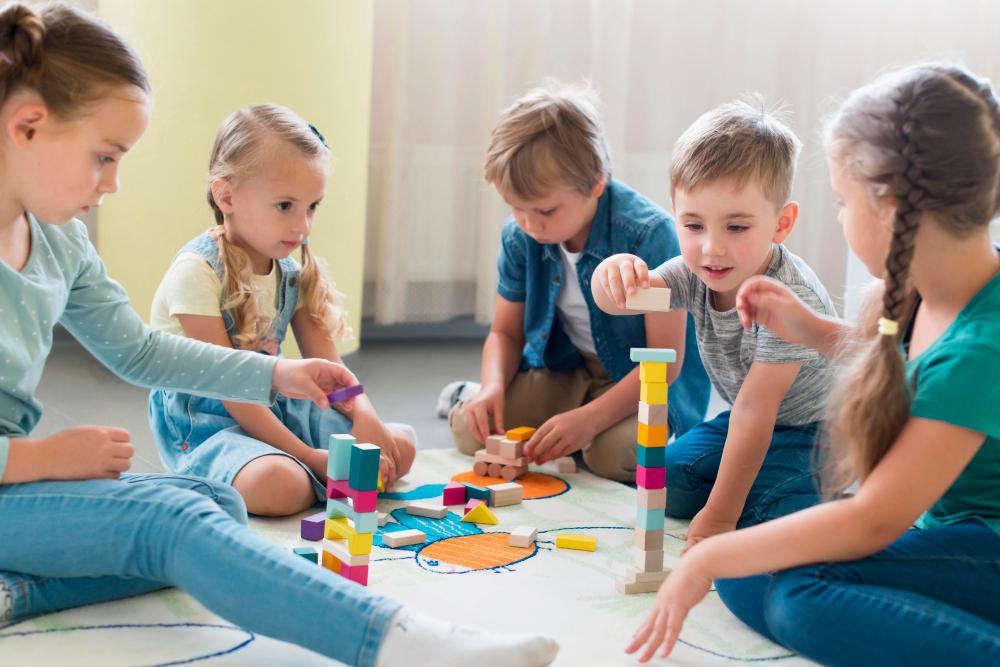Math classes can move quickly, and if your child doesn’t grasp a concept right away, it is easy to get left behind. Some students need more time than others to develop the problem-solving skills they need to succeed at math. Here is some advice on how to improve your child’s math skills while minimizing the struggles and frustration.
Source: www.freepik.com
The importance of understanding basic math skills
Math is a subject where understanding of one concept is necessary to grasp another. It can be very frustrating for students to have to move on before they are ready to do so. The basic math skills a child requires before moving on to more difficult ones are:
- Addition
- Subtraction
- Multiplication
- Percentages
- Fractions & Decimals
- Spatial Reasoning
Understanding these concepts often requires taking math off the page and bringing it to life. Numbers are more concrete when they relate to playing with blocks or counting beads. Understanding math basics in childhood can help children to develop their mathematical abilities and may even help them to choose a future profession.
How to solve math homework problems?
Parents are not always able to help children with learning mathematics. Some students experience difficulties with mathematical tasks from childhood onwards. They may need expert help at university if they miss out on a basic math foundation in childhood. They can receive professional help from experts at EduBirdie, an online service. Students can ask PhDs to “do my math homework” whenever needed. When they do your homework for you, they save you time and guarantee good results.
Source: www.freepik.com/
Bring math into daily life
Math doesn’t have to be an abstract, mysterious subject if you can relate it to what your child loves and show them how to use it in daily life. Take away their fear, and you will see how their interest grows.
- Ask your child to count the knives and forks on the dinner table.
- Have your child count the items when you put away groceries.
- Get older children to help measure ingredients for recipes.
- Count and pair various objects around the house. Ask your child whether there are an even or odd number of items.
- Get your child to watch the speedometer in the car to see how many miles an hour you are driving.
- Teach your child how to set the kitchen timer when you’re cooking.
- Encourage your child to figure out the answers to real-life situations. For example, “we have one bottle of juice for the picnic, and we need five. How many more do we need to buy?”
- Ask questions that involve sharing. “You have 28 pieces of chocolate, and you need to share them with your sister. How many pieces do you each get?”
Try game-based learning
Repetition is important for learning math, but this can get boring. Game-based learning can make repetition fun. It can involve playing family board games or using educational apps. Game-based learning is a fun way to consolidate concepts and past lessons.
Game-based learning can make daily practice entertaining. Practice is very important to help concepts to click and stick. Whenever possible, stay away from worksheets, flashcards etc. and rather find game-based learning opportunities that give your child practice in solving math problems. They will help to reinforce a current concept until it makes sense and allows your child to become a good math problem solver.
Draw or sketch word problems
Many children battle with word problems. The combination of words and numbers can be intimidating when trying to solve a math problem. Breaking them down step-by-step can be very helpful, especially if you do a drawing or sketch of the problem. A word sum may ask, “If Anne has three oranges and four apples and eats two of each, how many does she have left?” Draw the three oranges and four apples. Get the child to cross off two of each and count what’s left.
Conclusion
If you want to improve your child’s math skills, you need to know where they have the greatest struggles so you can address these areas. Practicing a concept they don’t understand will just cause more frustration. Sometimes all they may need is a slightly different approach to see a math problem in a new light. Using real-life situations to teach is one of the best ways to ensure your child develops a good foundation and becomes an efficient problem solver.
Author’s Bio
Mary Spears has gained a lot of experience in the academic writing field while working for some of the well-known writing services and also directly through her website. She has been a star writer and produced great essay examples on various topics in different subjects. She is always keen to help students who lack the skills to do their papers nicely.














